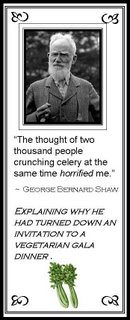From the Archives: Pshaw — Pass the Dip.
 In a communique entitled "d. isn't for diakka"—I've no idea what "d." is for—dumb? dippy? divine? Divine Dip?—occasional exoplasmaniac dipper E.W. ponders :
In a communique entitled "d. isn't for diakka"—I've no idea what "d." is for—dumb? dippy? divine? Divine Dip?—occasional exoplasmaniac dipper E.W. ponders :"Something came to me...that one of the problems the Diakka have is that they are so adept at creating verbal systems and elaborate explanations of the world and their experience of the world that they are unable to detach their Selves from said systems and explanations. That creating something like ACIM is actually an attempt to weave a vast net to keep people trapped within its system. Though I'm not sure why a 2-3 line summary in a small handful of words is offered at the beginning, but maybe it's just to show how hard it is for us to stop with what's simple and easy; we have to read 1000 pages to realize it can all be summarized in 5 words.This is definitely a common problem among people. It isn't hard to imagine someone penning a 500 page treatise on silence. There actually is a book twice that size on emptiness....(with all due respect, I've never read the book, and I'm sure it's well intentioned and full of insights, but still its very existence is evidence of our compulsion to verbalize everything)."
Yes, E.W., a common factor amongst us is our use of denial in order to believe the game is real. Donald Walsch's immensly popular Conversations With God suspiciously presents this game theory right upfront as smoothly as ACIM and as easily as Criss Angel levitates before our very eyes. CWG's God literally says "it's all a game and we make the rules." (True.) Any gamblers willing to bet that CWG is another Diakka Diamond of Hope? (This is a Risen pun-clue-reference to their opinion of 'hope.') "Nothing up my sleeve" or "I've got nothing to hide -- trust me" approaches are meant to be disarming and enable relaxation, which then enables things like trance, hypnosis, and the ability to max out a credit card in no time. A French Criticism of CWG notes Walsch's annoying "playing the imbecile" in order to pretend to deface the presentation of the simulate self (ego)—a disarming gaming mannerism—which I call "the aw shucks" or "pshaw" technique.
Also familiar is the "God, you crack me up, buddy" character development of the Smart-ass Master (as opposed to the Smart Ass-master) also found in Gary Renard's "The Disappearance of the Universe, etc." who appears as "J" — ("You can call me Ray, or you can call me Jay, or you can call me Johnny, or you can call me Sonny, or you can call me RayJay, or you can call me RJ... but ya doesn't hafta call me Johnson.") Here we have the well-known archetype The Trickster, the perfect foil for Diakka, who quite possibly invented it to begin with, and has been noticed by practically every culture, including Warner Brothers.
The "handful of words" is offered as a clue. ACIM is chock full of clues, and the more I read it, the more I feel like I'm playing Jumanji. (I liked Chris Van Allsburg's illustrated book better than the movie.)
The Diakka became adept at manifesting brilliant and complex personal world systems while on Earth, which is partially why they transitioned to a particular Diakka-like geography. Many intuit or outright know of the possibility of detaching the system from Self, but choose not to. This choice may be seen by them as part of their genius and is incorporated into the belief system. They don't necessarily want to "trap" anyone by constructing something like ACIM or CWG, although there is quite often a need for fame and to gather admirers and fans. I have seen several Diakkan societal configurations, from the isolated, sage-in-the-cave, to small salons of intelligentsia, to kingdoms and even larger nations of many millions of individuals. It could be said they have a kind of "hacker mentality" which is typified by arrogant brilliance and the need for some kind of assumed (and imagined) posture of supremacy. Imaginism, as discussed in The Risen, is still the key to living.
E.W. continues:
"I remember quite a few references to the imprecise nature of verbal expression in The Risen. You (plural) went to some lengths to advise that what you were saying was at some remove from the reality you were trying to express, that words are inherently full of holes and that these holes are what allow the non-verbal reality to percolate up through them. But still it's an extremely subtle problem in the spiritual arena: how does one person teach another that Truth is Silent."
Words are full of holes; can holes can fill up anything? Only if it's a game and that's the rule. The Risen stress over and over, and this is something mediums know—or should know from experience—that as symbols words are at least two levels of reality away from that which is being attempted to be represented. Words are symbols of symbols. A mental/intuitive medium experiences the non-symbols via the underconscious connection—the bridge to the Risen borderlands—which bubble up to the surface of terrestrial consciousness, where the ego (or simulate self) does what it was meant to do—filter, interpret, and present to the Self to help it negotiate and navigate its way within a world of manifestation (sometimes known as maya.)
How can one teach another that "truth is silent"?
The Tao Te Ching advised us, "He who knows does not speak; he who speaks does not know."
One doesn't teach another anything. Rather, alone or together, we uncover the Ten Thousand Things of manifestation. The Risen suggest that one who knows cannot speak; as soon as one speaks, everything rushes out the hole and is lost in translation.

